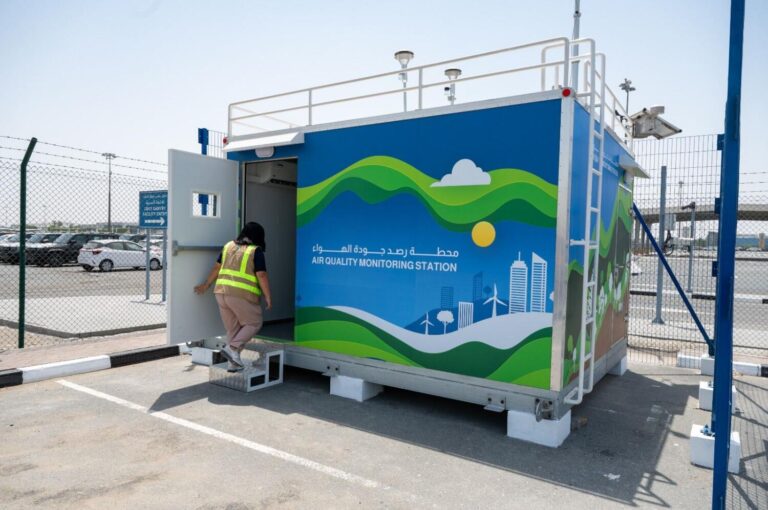In the heart of Jebel Ali, amidst sprawling factories, stands a modest yet powerful air quality monitoring station. Despite its small size, this Dh2 million facility, unveiled on World Environment Day, is capable of measuring 101 types of air pollutants along with temperature, humidity, wind direction, and more.
This state-of-the-art facility was launched on June 5 to safeguard the health of workers in the area. Salem AlHammadi, Director of Environment, Health, and Safety at the Department of Planning and Development from Trakhees, explained, “Given the concentration of factories in Jebel Ali, it’s crucial to ensure that air quality remains unaffected by pollutants. By monitoring harmful pollutants, we aim to protect both residents and workers.”
The station operates around the clock, collecting air quality data every second. This data is continuously analyzed by experts at the Ports, Customs, and Free Zone Corporation.
How Pollutants Are Measured
Within the facility, a pipe draws in air from outside, which is then divided into seven streams to be analyzed by various sensors. On one side, eleven sensors are stacked to measure different pollutants. Two sensors alone can detect 90 types of pollutants, while the remaining nine measure another 11 parameters, using flames, air, and water as needed.
Some sensors detect fine dust particles, while others measure larger dust particles. Moodhi Ali Rasheed, Senior Officer Environment, Public Health and Safety at Trakhees, noted, “These dust sensors help us predict and study dust storms, determining their origin. This information allows us to investigate whether the storms are natural phenomena or caused by industrial activities.”
A computer in another corner of the facility displays real-time pollutant levels through graphs and numbers, providing average values for various chemicals in intervals of one and five seconds.
Enhancing Quality of Life
This monitoring station aligns with the Dubai Quality of Life Strategy 2033, part of broader initiatives led by Sheikh Hamdan bin Mohammed bin Rashid Al Maktoum, the Crown Prince of Dubai, to enhance the quality of life in the emirate.
AlHammadi emphasized that accurate air quality data from Jebel Ali is vital for developing and implementing environmental policies. “The data from this station can assess the environmental impact of industrial activities and determine necessary measures to minimize this impact and ensure compliance with environmental standards,” he said.
Through this innovative facility, Dubai takes a significant step towards ensuring a healthier environment for its residents and workers, reflecting its commitment to sustainability and well-being.


